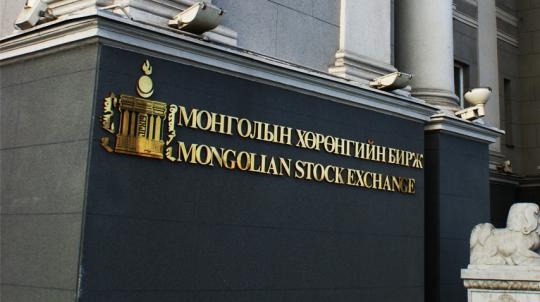
Phanar Legal and Novus Law Group Enter Into Strategic Alliance for UK-Mongolian Business
Phanar Legal and Novus Law Group are pleased to announce a strategic alliance to serve the needs of UK-Mongolian business. Whilst remaining separate for legal and regulatory reasons, for UK and Mongolian clients the firms operate as a single firm for client purposes offering clients both English law and Mongolian law expertise. The firms’ combined expertise encompasses all commercial law areas such as Capital Markets, M&A, Joint Ventures and Finance (including export credit finance and aircraft finance) across a number of industry sectors, including mining, transportation, infrastructure, real estate and construction, retail and technology.
Batbayar B, Managing Partner of Novus Law Group commented: “We are delighted at entering into this strategic relationship with Phanar Legal which gives us incredible international reach and capability whilst remaining true to our Mongolian heritage and identity. Phanar Legal is the ideal partner for us and we are already working with them on exciting joint projects with more in the pipeline. The cultural fit between our firms is truly exceptional and stands us in good stead to go from strength to strength.”



Philip Rogers, Senior Partner of Phanar Legal commented: “As the UK reaches outward to the rest of the world Mongolia is a key market for us. With Oyu Tolgoi, the UK is already the largest foreign investor in the country, and together with Novus Law, we are ideally equipped to serve the legal needs of UK-Mongolian trade and investment flows. Novus Law Group and Phanar Legal are both young and dynamic firms sharing the same values around exceptional client service and a global perspective applied locally.”
Her Britannic Majesty’s Ambassador to Mongolia, Philip Malone, commented: “It is pleasing to see this alliance between a British and a Mongolian professional firm come into being which will no doubt play an important role in building strong commercial links between our two countries.”
UK Trade Envoy to Mongolia, Julian Knight MP, commented: “The UK is renowned for the strength of its professional services firms. This is a great example of how professional services firms can work together to promote international trade and investment between the UK and Mongolia.”
All enquiries regarding the strategic alliance should be directed to:
Philip Rogers, Senior Partner, Phanar Legal, +44 20 3915 5618, email: philip.rogers@phanarlegal.com
Batbayar B, Managing Partner, Novus Law Group, +976 7010 4575, email: batbayar@palevioletred-hornet-980837.hostingersite.com
Read More
Auctions for Contracts Are Being Introduced to the Draft Amendment of the Renewable Energy Law
An amendment to the Renewable Energy Law has been drafted by the Energy Regulatory Commission of Mongolia and is being planned to be submitted to the Parliament discussions. Please see below a summary of the main changes to the Renewable Energy Law.
Auctions for Contracts
Among the changes to the Renewable Energy Law, the notable one is the introduction of the auction-based approach for renewable energy contracts. The auction scheme will be adopted in addition to the “Feed-in-Tariff”. The government will announce the location and capacity of a specific renewable energy project and will select the contractor based on the lowest bidding price for the electricity to be delivered to the grid.
The authority in charge of adopting the detailed auction rules and organizing the auction will be the Ministry of Energy, according to the draft amendment.
Sale of Electricity to Distribution Networks from User’s Renewable Energy Sources
Another concept introduced in the draft amendment is the ability to sell electricity to the electricity distribution networks by users with a renewable energy source. Such ability will allow the users to install small capacity renewable sources, such as rooftop solar panels, at their premises and sell energy to the nearby users using the distribution network in the area.
The tariff for the electricity sold by the end-user renewable energy generators to the distribution networks will be determined by the Energy Regulatory Commission and to be reviewed on annual basis. Detailed regulations are currently being drafted.
Feed-in-Tariff Changes
Feed-in-Tariffs (“FIT”) of renewable energy sources selling electricity to the grid is being changed under the draft amendment. Please see below respective changes in FIT per kWh.
| Source | Old FIT | New FIT |
| Wind Sources | 8.00 – 9.50 US Cents | Up to 8.00 US Cents |
| Solar Sources | 15.00 – 18.00 US Cents | Up to 12.00 US Cents |
Proposed FITs are approximately 15-30% lower than the current maximum FITs and eliminate the minimum limit of FIT as opposed to the current FIT in the law. The draft amendment currently does not provide whether such changes in the FIT will retroactively apply to current renewables projects with FITs approved by the Energy Regulatory Commission.
Miscellaneous
Another change proposed in the draft amendment law is that the sellers under the Power Purchase Agreements to submit a project implementation guarantee (in the form of a bank guarantee or deposit) for guaranteeing the performance of the seller’s obligations under the Power Purchase Agreement. The amount of the guarantee is currently being proposed by US$ 50.00 per kW.
Read More
Mongolia: Directives for Privatization and Restructuring of State Owned Entities
Currently, there are 102 State enterprises operating in Mongolia. Most of these enterprises are wholly owned by the State whereas some have less than 100% State ownership. Out of these 102 entities, 10 are operating under Erdenes Mongol LLC and 5 under the Ministry of Finance while 87 are operating under the Government Agency for State Property Policy and Coordination. The Parliament decides the timing, method of privatization, and restructuring for the Government to undertake the actual implementation.
Privatization is still continuing in phases since Mongolia first legalized the concept of private property and approved privatization laws in the early 1990s. The Parliament enacted main directives for privatization (‘Privatization Directives’) over the years, specifically 2001-2004, 2005-2008, 2010-2012, and 2015-2016, which were amended and, in some cases, partially invalidated from time to time. These main directives set forth the list of State-owned entities that must be privatized or restructured along with specific method, timing, and use of proceeds. Due to various circumstances and challenges, not every directive is implemented within the specified timeframe. Therefore, in some years, the Parliament directed the Government to undergo the then-existing Privatization Directives, without approving a new one.
The 2015-2016 Privatization Directives, which was approved by the Parliament Resolution #70 dated July 03, 2015, is currently effective. In order to implement this resolution, the Government issued Resolution #330 in 2015, specifying the privatization method and timeframe for each State entity identified in the directives (see below).
| State entities | Privatization proportion and method | Implementing timeframe |
| CHP2, CHP3, CHP4 Darkhan Power Plant Erdenet Power Plant | The state keeps 70%; 30% dilutive secondary offering | 4th quarter of 2015 |
| Ulaanbaatar Power Transmission Grid | Separate the power supply business to a new company and privatize a newly created company | 4th quarter of 2015 |
| Erdenet-Bulgan Power Transmission Grid | Open tender | Unclear |
| National Dispatch Center | Restructure to a commercial operator company | Unclear |
| Erdenes Tavan Tolgoi | Sell the State owned shares through public offering | Unclear |
| Shivee Ovoo Coal Mine Baganuur Coal Mine | State keeps 70%; 30% dilutive secondary offering | 2016 |
| Khutul Cement and Lime Factory | 100% privatization | 4th quarter of 2015 (implemented) |
| Orgil Sanatorium Resort | 100% privatization | 4th quarter of 2015 (implemented) |
| College of Film | Sell 51% currently held by the State through open tender | 4th quarter of 2015 (implemented) |
| Auto Impex | Sell 51% currently held by the State through open tender | 4th quarter of 2015 |
| Mongol Post | State keeps 66%; 34% dilutive secondary offering | 4th quarter of 2015 (implemented) |
| Mongol Telecom | Sell 51% currently held by the State through open tender | 4th quarter of 2015 |
| Agricultural Commodity Exchange | State keeps 34%; 66% dilutive secondary offering | 2016 |
| Mongolian Stock Exchange | 100% privatization | Unclear |
| State Bank | 100% privatization | Unclear |
As shown above, only 4 companies (Khutul Cement and Lime Factory, Orgil Sanitorium Resort, College of Film, and Mongol Post) were privatized by the Government to date.
The Parliament amended the 2015-2016 Privatization Directives in November 2015 and November 2016, respectively, and directed to the Government to implement it until the new directives for 2017-2018 are approved. However, the new directive has not been approved.
According to some sources, the Government is working on the 2018-2020 Privatization Directives. The scope and timing of such directives are unclear at present. It is likely that the State enterprises that are listed in the previous directives would be included in the new directive but with revised method and timing.
Read More

